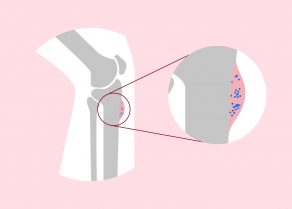afabicin (Debio 1450)
Selective antibiotic against staphylococcal infections
afabicin (Debio 1450), is the first-in class of a novel antibiotic class, that inhibits fatty acid synthesis in staphylococci by targeting the Fabl enzyme. It fulfills all four WHO 2020 innovativeness criteria, i.e. new chemical class, new target, new mode of action and no cross-resistance to other antibiotic classes. As a result of its potent and selective activity, afabicin specifically targets staphylococci while preserving intestinal microbiota. The compound currently is in phase II research for the treatment of Bone and Joint infections (BJI) due to staphylococci. Afabicin is available for both oral and intravenous administration. Non-inferiority against vancomycin/linezolid, as well as safety and good tolerability, have been demonstrated in a double-blind Phase 2 trial with 330 patients with acute bacterial skin and skin structure infections (ABSSSI). Currently, a Phase 2 trial in bone and joint infections (BJI) is being conducted in several countries, comparing afabicin to standard antibiotics.
Product Snapshot
FabI Inhibitor
Inhibition of bacterial fatty acid synthesis
Being researched in:
- Bone and Joint infections
- ABSSSI
In short
Afabicin offers a unique mechanism of action with a narrow spectrum of activity against staphylococci, providing a promising investigative therapy for hard-to-treat staphylococcal infections
Highly potent first-in-class FabI inhibitor, with both oral and intravenous formulations currently in phase II clinical development in the treatment of BJI
Bone and Joint Infections (BJI)
Highly associated with Staphylococci bacteria
Bone and joint infections are a group of diseases that include osteomyelitis, septic arthritis and prosthetic joint infections affecting over 30,000 people per year within the US, UK, France, Germany, Spain and Italy combined. These conditions are associated with significant morbidity and, in certain circumstances, mortality, worldwide. Staphylococci are the most common causative bacteria, identified in 30 to 70% of the cases.

Acute Bacterial Skin and Skin Structure Infections (ABSSSI)
Phase II, randomized, double-blind, non-inferiority study in ABSSSI
A phase II study was conducted in 330 patients with (ABSSSI) caused by staphylococci, demonstrating the efficacy and safety of this first-in-class staphylococci-selective antibiotic, afabicin.
Afabicin was efficacious and well tolerated with both tested doses being non-inferior to vancomycin/linezolid (15% NI margin). Staphylococcus aureus was the causative pathogen in >96% of patients in the mITT population with approx. 50% MRSA in all groups at baseline.


Mode of action: FabI Inhibitor
Inhibition of bacterial fatty acid synthesis
The active moiety of afabicin inhibits the fatty acid synthesis (FASII) pathway in staphylococci bacteria by targeting FabI. FabI, an enoyl-acyl carrier protein (ACP) reductase, catalyzes the final step in fatty acid chain elongation by reducing enoyl-ACP to acyl-ACP. The FabI enzyme is essential for bacterial growth and survival and it is highly conserved across all staphylococcal species. FabI Inhibitors represent a novel antibacterial class that has the potential to address the challenge of bacterial resistance.
